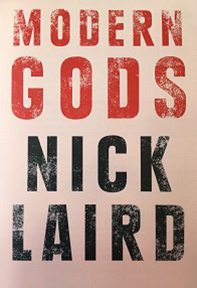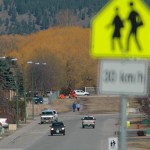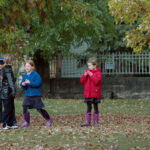Home »

Modern Gods an outstanding read
Book Review
By Derryll White
Laird, Nick (2017). Modern Gods.
The Story – in fact any story – acts as an excursion to the hyper real. The dailiness we inhabit is replaced by a copy of the world, one where we find closure.
 With small details Nick Laird reminds me just how little I know of the world. This novel is based in Northern Ireland and then switches to follow the genesis of ‘The Story’ in Papua New Guinea.
With small details Nick Laird reminds me just how little I know of the world. This novel is based in Northern Ireland and then switches to follow the genesis of ‘The Story’ in Papua New Guinea.
Northern Ireland has foods such as baimbrack, wheaten and rusks – what the heck are they? And there is this tension, which is compelling but incomprehensible. Protestant and Catholic and then the wash of the new immigration reaching into the smallest northern communities like Magherafelt and Ballyglass.
But Laird also digs down to the fundamentals of relationship, region and religion. He looks at the cultural structure of what produces a North Irish Protestant – the church a ‘structured marketplace of odd transactions.’
Then he takes the reader out of all known worlds to Papua New Guinea. The revelations of cargo cult thinking, of new ways of seeing the most common problems, brings catharsis. The magic of the unknown allows the reader to see what is most common about our own culture – money, power, control. ‘The Story’ reveals what we all share a removal from.
Laird is very clear about what it is to be human, about the difficulties of doubt – both self and other – that we all negotiate. He removes the reader from the common realities of the known and insists that the unknown be examined. That way we grow. That he hints that the unknown is not far removed helps the reader bring Ireland and Papua New Guinea together into an expanded view of what we inhabit.
‘Modern Gods’ looks at faith and redemption and in the end turns the resolution of that back to the individual reader. This is an outstanding read.
****
Excerpts from the novel:
CHILDREN – Time. Children ate time. Before, days moved at a walking pace, routine and predictable. You could liken time to some natural state or process, a backdrop to events, not an event in itself. But once Isobel came, or now Michael, time itself changed. The minutes hardened into objects that could be counted and traded like money, and she always came up short.
THE END – She didn’t want the children to have to go through the boxes – she’d done it with her own mother’s things, few though they were. All her mother’s clothes had fitted into two bin bags. She found she was hugging herself now, hugging her fur-coated body. She wanted to sift her life through her fingers, to weigh the thing and not find it wanting. To find that everything was worth it in the end.
IRELAND – For how could you live here and not be sad? It was absurd: you didn’t “believe” in something if you were born into it. You accepted it, you acquiesced, you submitted, you lost – and you gave up the chance to become yourself, to come to conclusions of your own. One must be very naive or dishonest to imagine that men choose their beliefs independently of their situation.
MARRIAGE – Hadn’t Lear in “The Owl and the Pussycat” got the analogy down pat? Dear Pig, are you willing to sell for one shilling the ring at the end of your nose, your nose? Marriage was, as Levi-Strauss remarked, an economic institution not an erotic one. Except that watching the ring slide – not entirely smoothly – onto Alison’s finger, it occurred to Liz that the symbology was as much about penetration as possession, that they were always intertwined
THE TROUBLES – “I mean you have to remember,” he began, “where we were, what had happened. They were killing us for being Protestant, just for existing. We had to strike back. We had to. We had to let them know that if they were going to kill us in shops and bars and going about our business, we were going to do the same. It was war.”
MODERN GODS – She tapped her fingers on the pile of magazines – fashion, lifestyle, “interiors” – and thought how awful it was to be young now, even here at the end of the earth. It pressed in, the wider world and its stupidity and pornification, lust and greed and envy and hatred. Sometimes she forgot how hard it was to be female, and then she was reminded. There was no way to protect a girl from the world – it was like trying to hold off a tidal wave of shit with Sellotape and string.
 – Derryll White once wrote books but now chooses to read and write about them. When not reading he writes history for the web at www.basininstitute.org.
– Derryll White once wrote books but now chooses to read and write about them. When not reading he writes history for the web at www.basininstitute.org.







